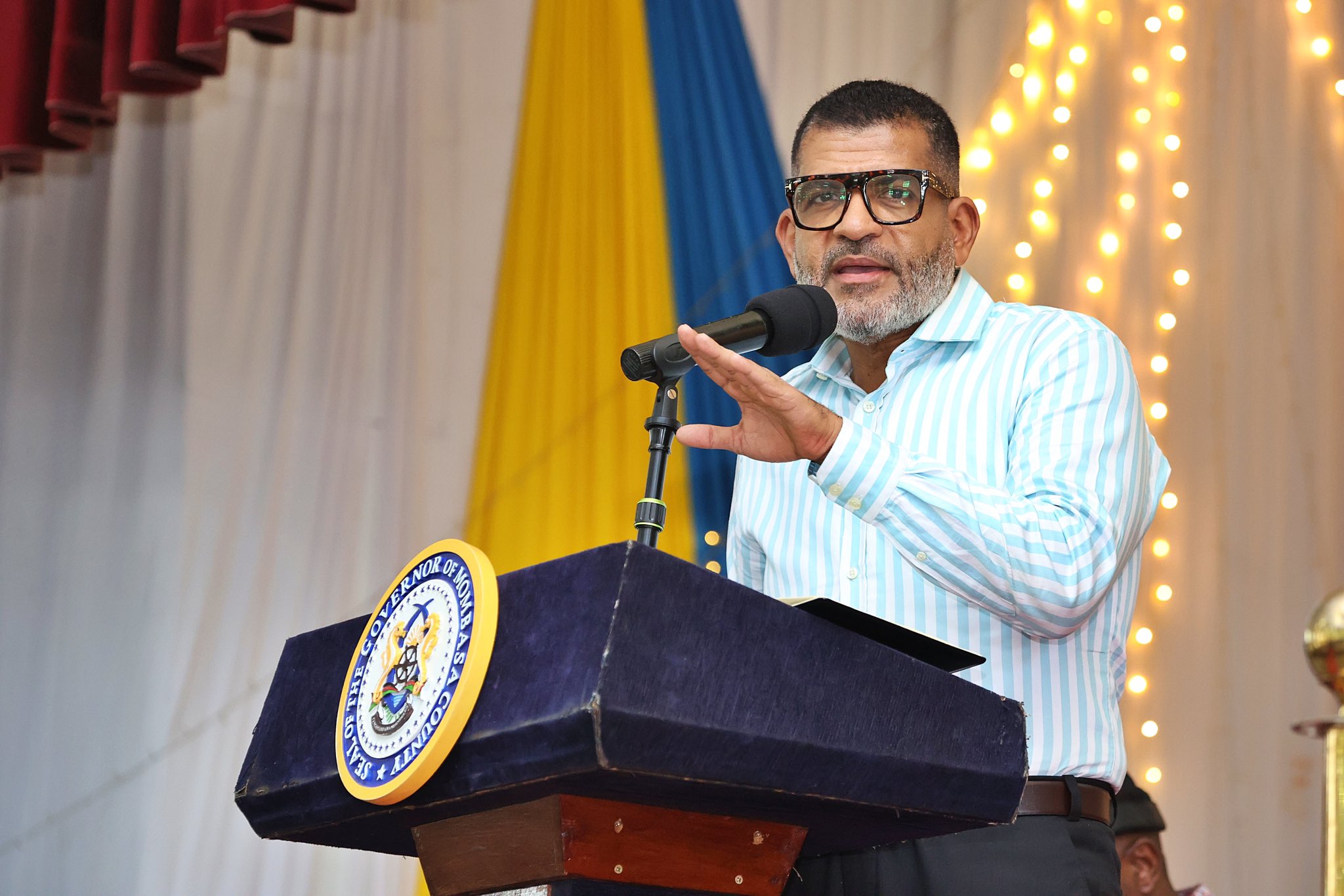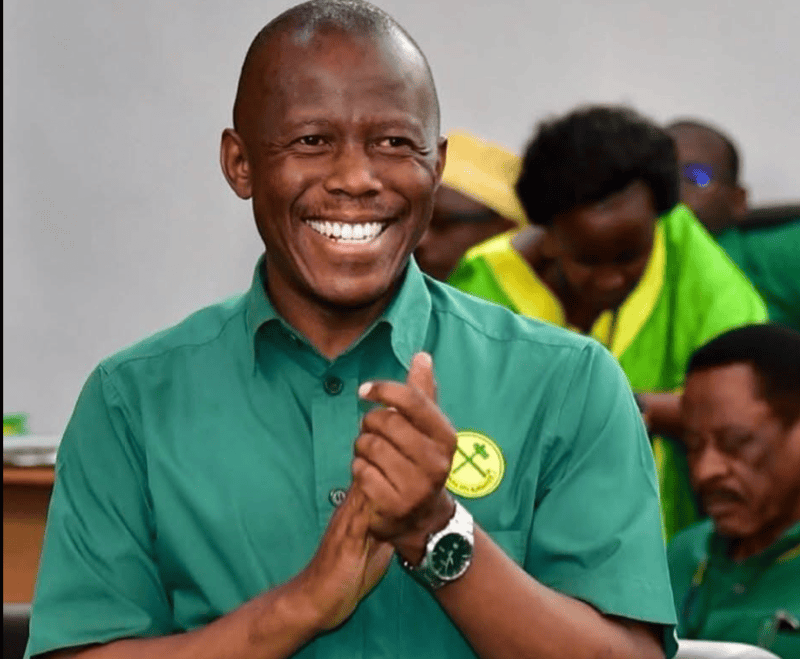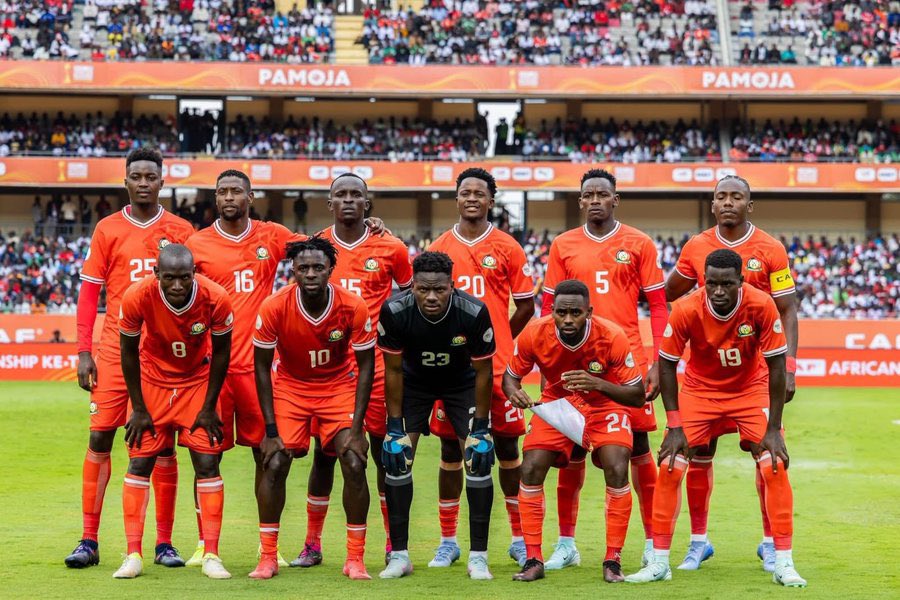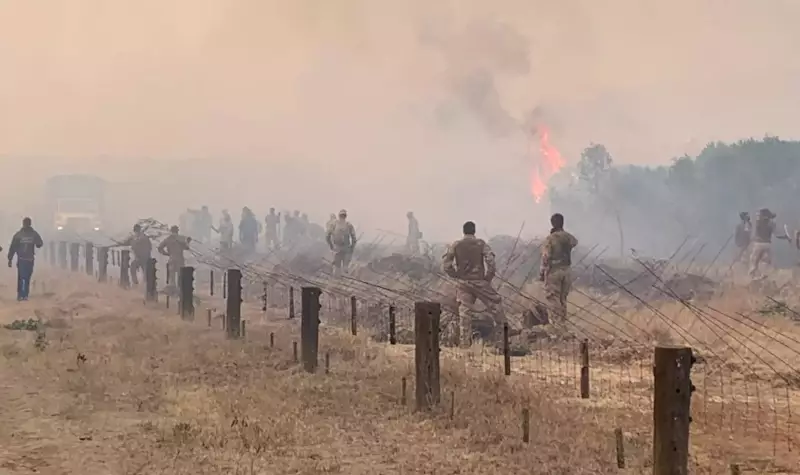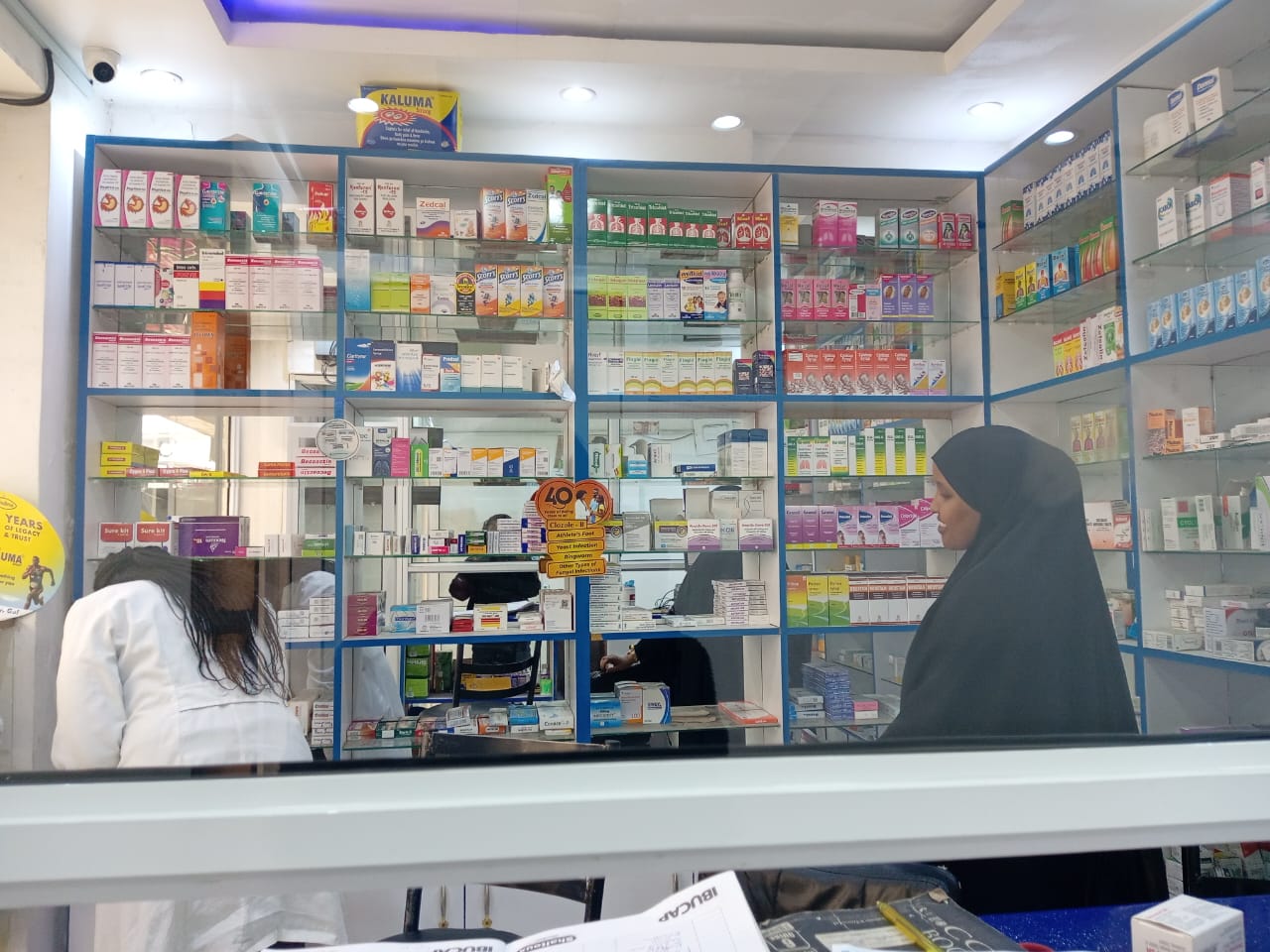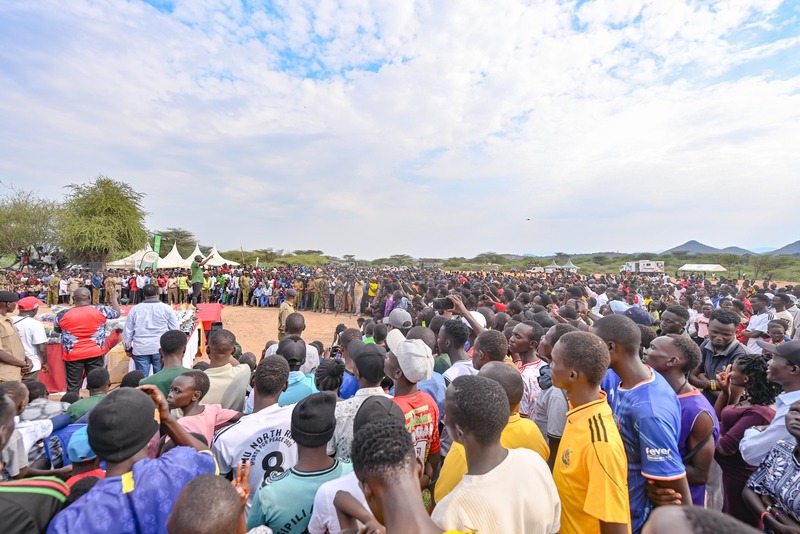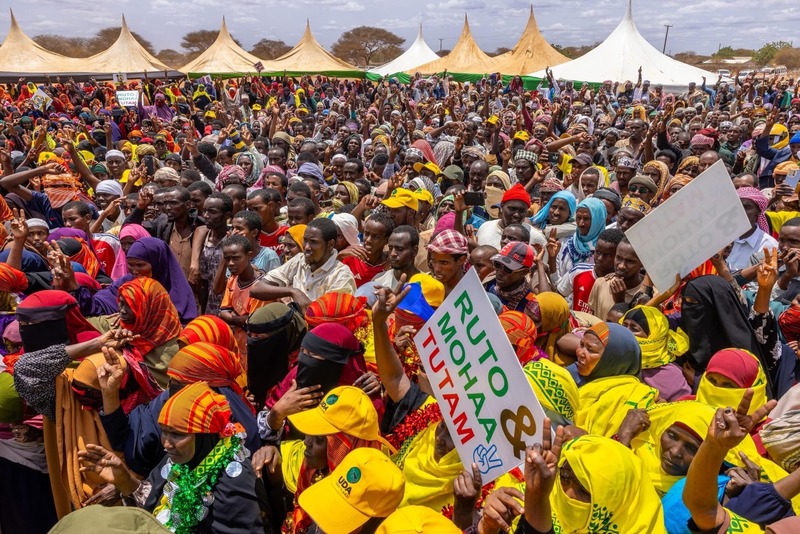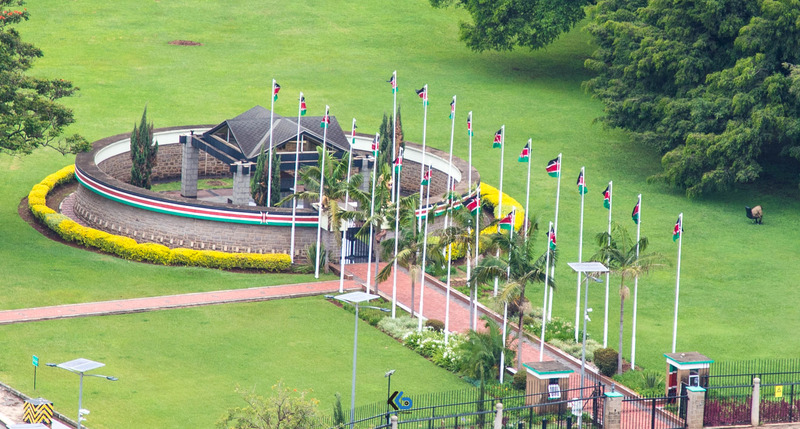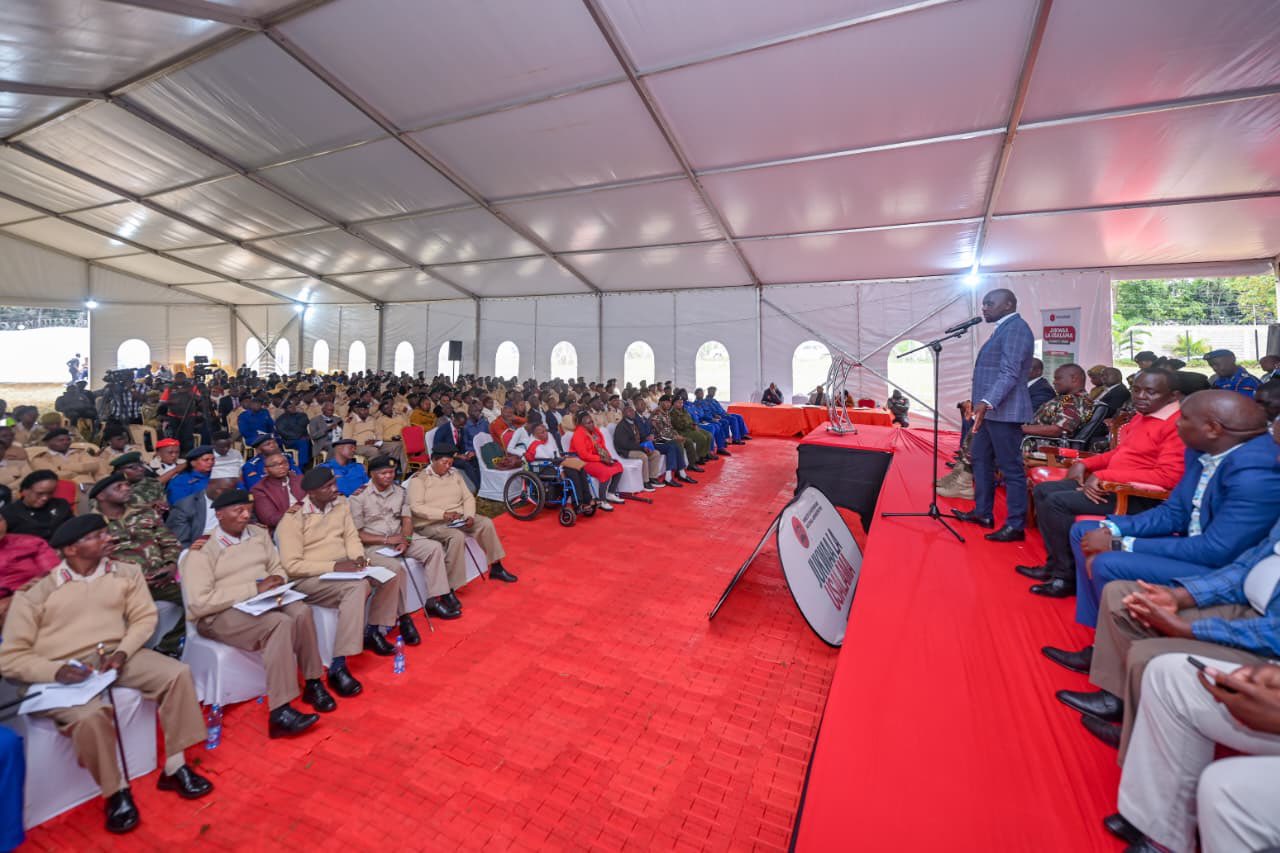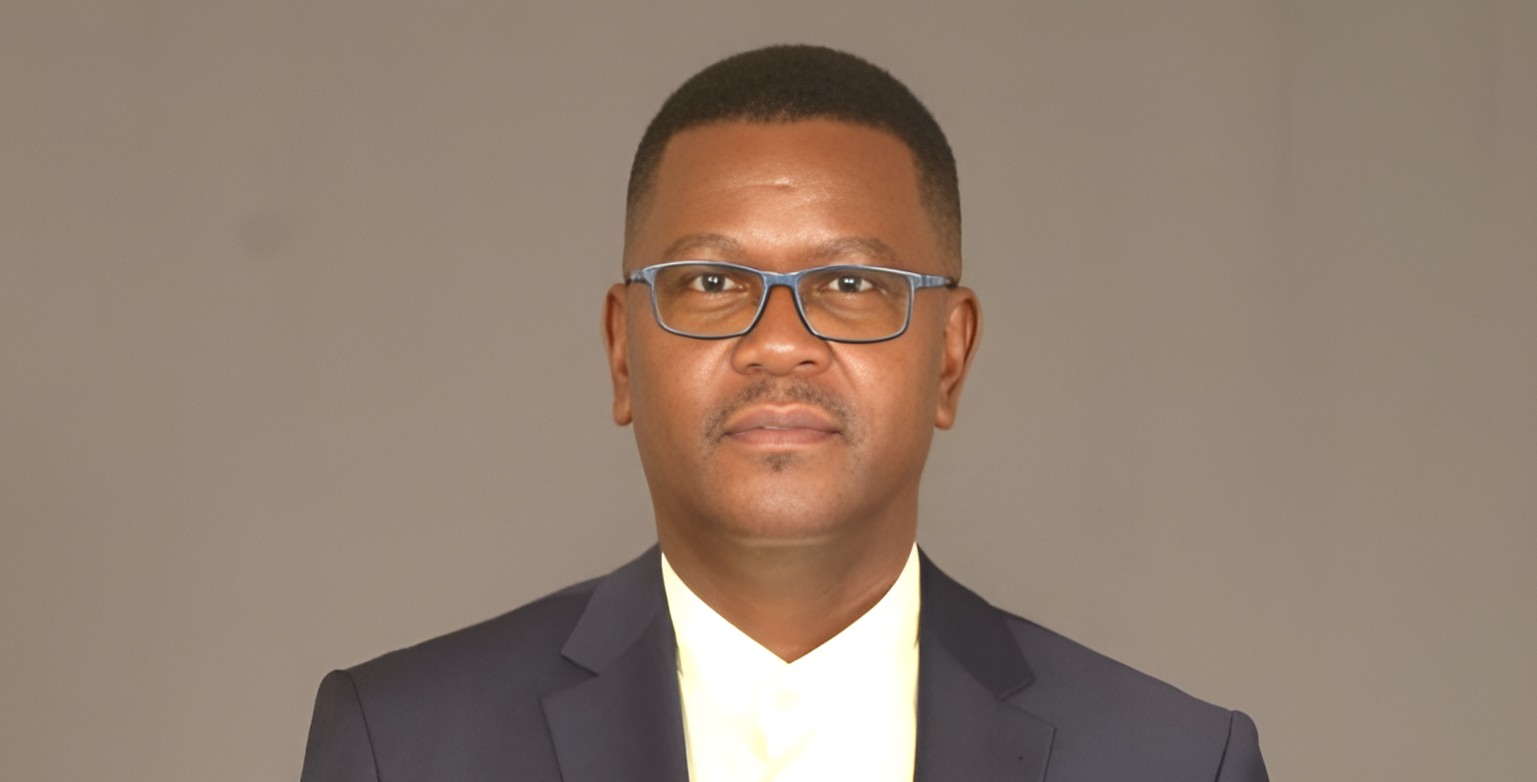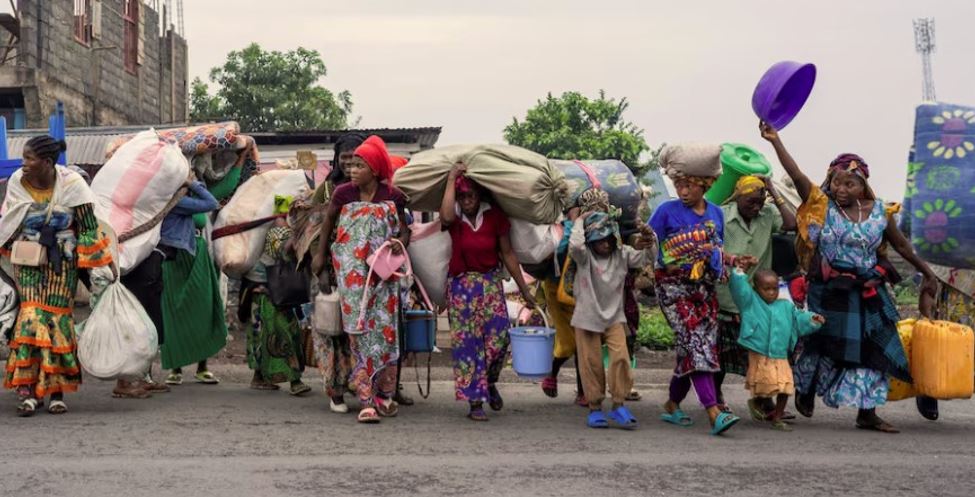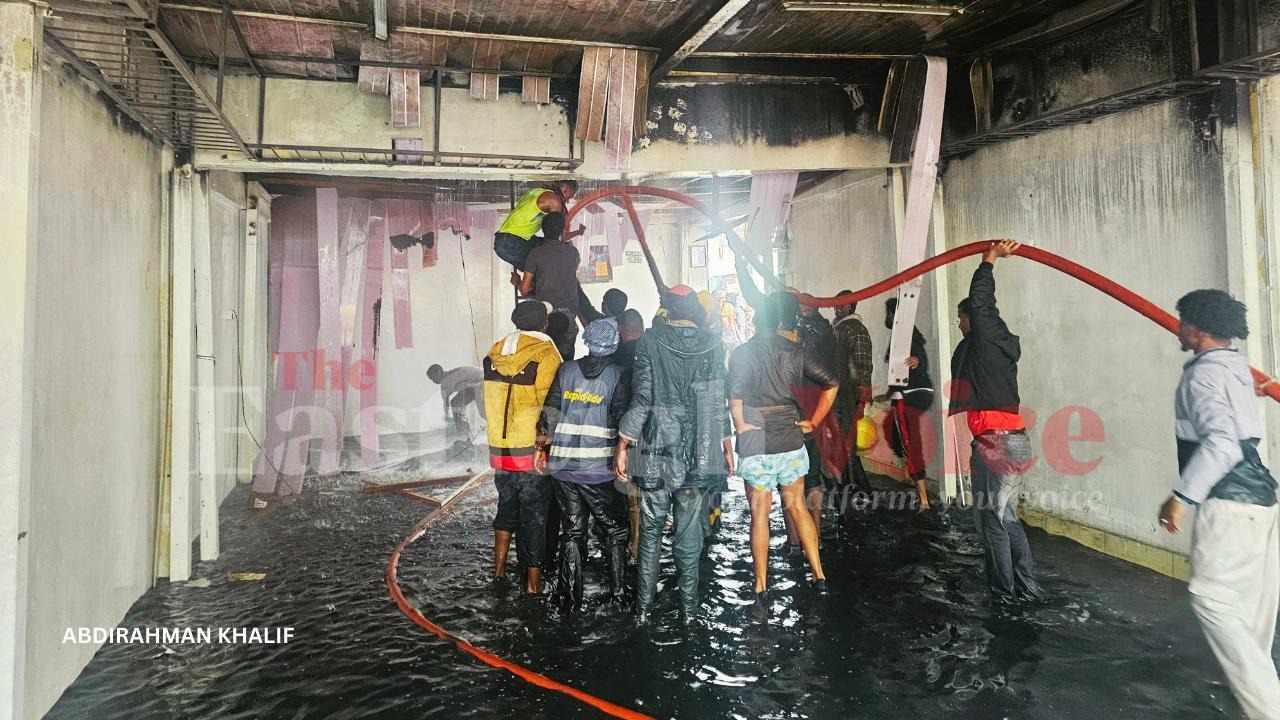Muguka ban: Mombasa governor alleges intimidation after radio station raid
After the incident at Radio Rahma, Governor Abdulswamad asserted that attempts to intimidate him would fail while only fueling his determination to rid his county of the stimulant he says has left many young people in rehabilitation centres.
People claiming to be officers of the Kenya Revenue Authority (KRA) stormed a radio station owned by Mombasa Governor Abdulswamad Sheriff Nassir on Wednesday, sparking claims of intimidation to undo the county's muguka ban.
In his confrontation with the alleged KRA staff during the Radio Rahma raid, Abdulswamad asserted that attempts to intimidate him would fail while only fueling his determination to rid his county of the stimulant, which he says has left many young people in rehabilitation centres.
More To Read
- 10 counties, including Garissa, Mombasa flagged as hotspots for youth substance abuse
- Garissa Muslim leaders urge crackdown on cross-border drug trafficking to save youth
- Lamu stakeholders unite to help recovering drug addicts rebuild lives
- Reformed Isiolo drug addicts with no jobs for income risk relapse
- Why Lamu drug addicts shun rehab centre and opt for methadone clinic
- Ruto's pledge as meeting with Coast leaders over muguka ban finally takes place
The county chief condemned people he did not name, alleging intimidation and an attempt to shut down the radio station following the airing of conversations about the harmful effects of muguka.
"This only gives me more morale. How many media outlets will you shut down in Mombasa? If you shut me down, I am not alone. This is the voice of the people of Mombasa. I have faith. Do whatever you want, but this issue will not end."
He added that, for the first time, five court cases have been filed against him, with four to be heard in Mombasa.
"All four courts have ordered that the ban continue until the cases are heard," he said, adding that one of the cases was in Embu County, where traders grow the crop.
Abdulswamad insisted he would continue serving his people, as they were the ones with children in rehabilitation centres due to the abuse of muguka.
“This is not my battle. It is a battle for the whole region. This is their fight. Do you think you can harass us because of the Abdulswamad government or the county government, intimidating us with orders from above and court orders as threats? This is not my battle. I speak for millions who are affected.”
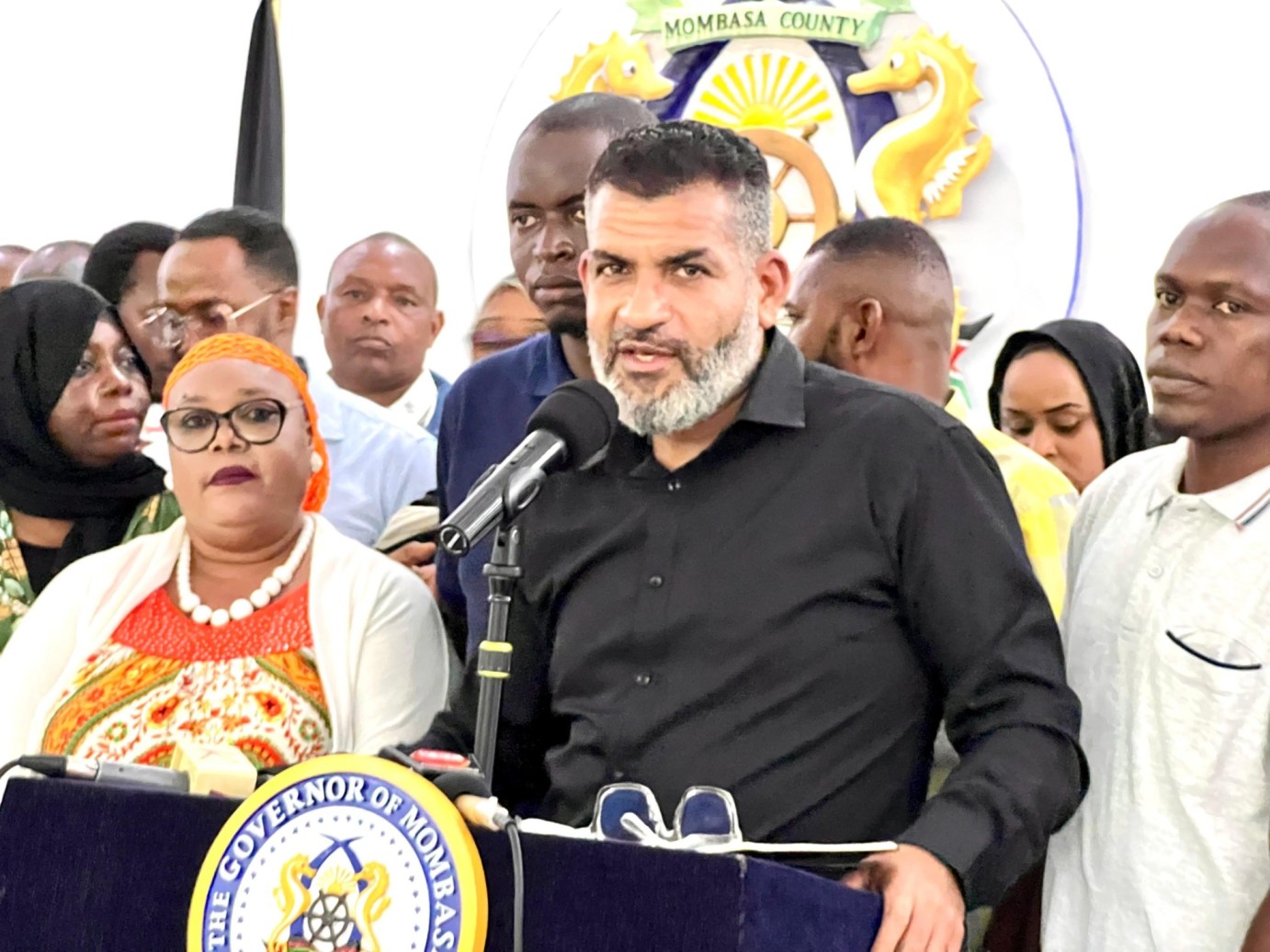 Mombasa Governor Abdulswamad Sherrif Nassir addresses a press briefing on trade in muguka and miraa in his county, on May 14, 2024. (Photo: Farhiya Hussein/EV)
Mombasa Governor Abdulswamad Sherrif Nassir addresses a press briefing on trade in muguka and miraa in his county, on May 14, 2024. (Photo: Farhiya Hussein/EV)
"Act of oppression"
Representing Kilifi Governor Gideon Mung’aro, Speaker Teddy Mwabire, who was at the station, echoed Abdulswamad's sentiments, condemning the alleged intimidation tactics, while Kisauni MP Rashid Bedzimba described the raid as an act of oppression and said they were in support of the governor.
"People have arrived claiming to be from the KRA, saying they want to confiscate equipment and shut down the media company. The concern is why they want to shut down this company today yet it has been operational," Bedzimba said.
"We will not accept any form of oppression. He has the right to speak on what his legislature has passed and discuss issues affecting his constituents. We see it as unjust for Radio Rahma to be shut down by people claiming they are from the KRA. That is why we are here to ensure Radio Rahma continues to operate. It is a voice for the Coast and the whole of Kenya. That is why we are united."
By press time, The Eastleigh Voice's efforts to contact the KRA for comment on the matter had been unsuccessful.
In her reaction to the incident, Likoni MP Mishi Mboko noted that Radio Rahma, regardless of its ownership, was separate from the Mombasa County Government.
Mishi further noted the importance of freedoms of speech and media, expressing confusion over why the station was targeted just after discussing muguka issues.
"Radio Rahma is one channel that provides community and health information. Why is it being targeted after discussing muguka?"
She added, "The constitution outlines our freedoms of speech, association, and media, so the public must receive broadcasts. Radio Rahma provides us with community and health broadcasts. We are puzzled as to why Radio Rahma is being targeted after discussing muguka. "
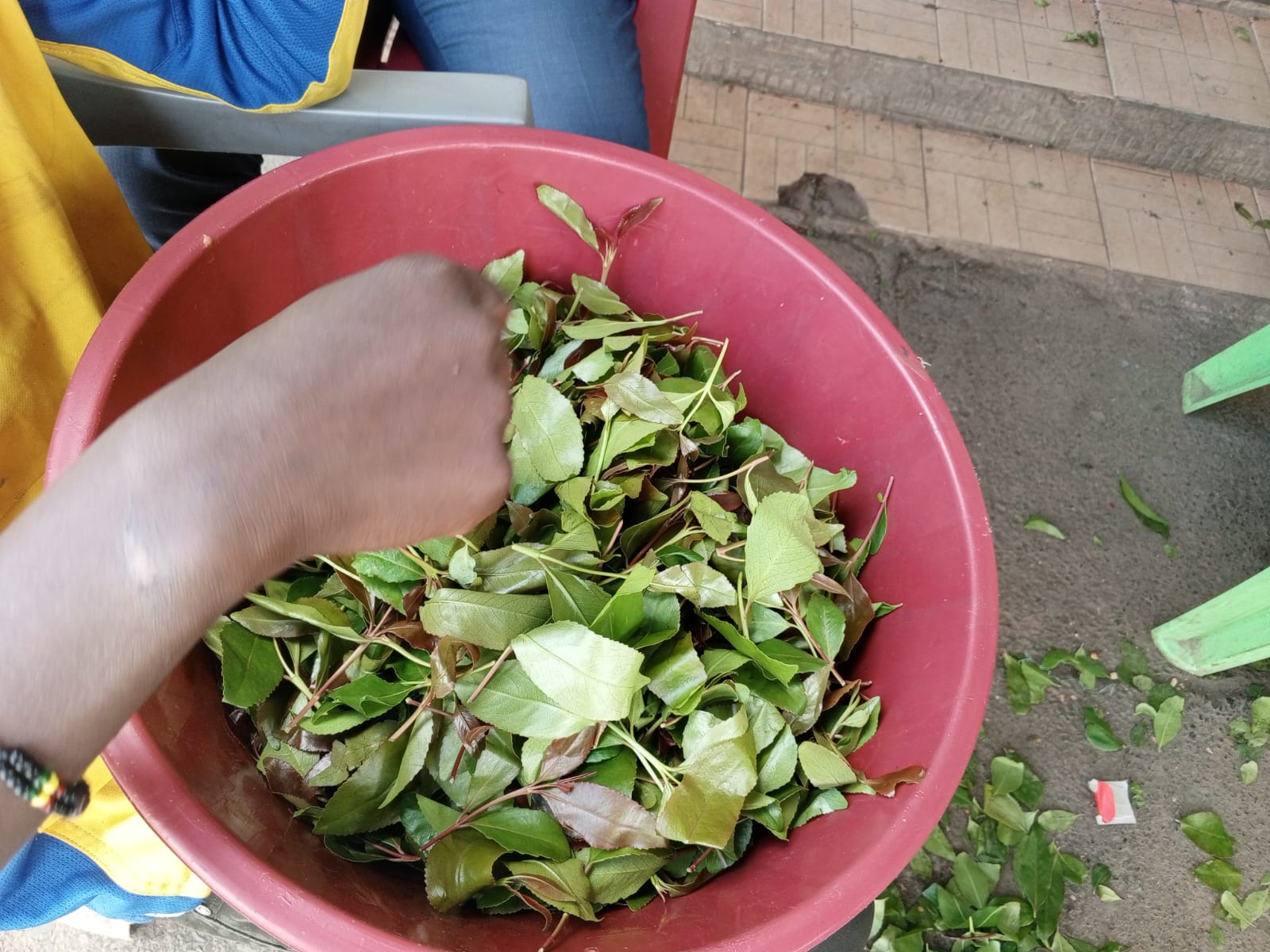 Muguka is sold at California Estate in Eastleigh in this file picture. (Photo: Charity Kilei)
Muguka is sold at California Estate in Eastleigh in this file picture. (Photo: Charity Kilei)
Mishi also said their stance remained that muguka was harmful to the community, a position she said would not change even with intimidation.
“The penalty of the grave is known by the one who has died. Those who wear the shoes know where they pinch. Our children are in rehab. The president needs to think as a father because he is the father of all Kenyans. Whenever he makes decisions, they should be balanced," she said.
"Muguka has devastated the youth and the coastal community. We have fought against drugs and continue to do so every day. Muguka and heroin have no difference, both are harmful, and we will continue to fight against them.”
Taita Taveta Deputy Governor Christine Saru assured residents they would keep fighting to maintain the ban.
"There are many ways to undermine coastal leaders. This is not just the governor’s stance but the stance of the coast," she said, calling for equal treatment of all Kenyans and denouncing what she termed a government bias.
Transport blockade
Meanwhile, Muguka transporters clashed with Mombasa County officials at the Bonje Cess collection point on Wednesday as the county continued to enforce the ban.
Trucks and other vehicles carrying the commodity were denied entry into the coastal city, leading to a heated confrontation with traffic officers.
The altercation began with a verbal exchange and escalated to a near fistfight between traders and county officials. The traders, whose vehicles were loaded with the stimulant, protested the ban's enforcement.
The standoff caused a significant traffic buildup in the Bonje area as truck drivers attempted to bypass the cess collection centre.
Governor Abdulswamad has remained steadfast in his decision to implement the no-entry ban, stating he is prepared to face any political consequences.
Earlier on Wednesday, he and other Coast leaders met in Mombasa to chart the way forward following Executive Order No. 1 of 2024 prohibiting the entry, transportation, sale, and distribution of muguka.
On his X page, Abdulswamad wrote, "As the matter is before court, we will refrain from speaking on the matter. That said, we will take our political direction from the people and from God."
Present at the meeting were Mombasa Deputy Governor Francis Thoya, Taita Taveta Deputy Governor Christine Saru Kilalu, County Assembly Speakers Aharub Khatri (Mombasa) and Teddy Mwambire (Kilifi).
Also in attendance were Jumuiya ya Kaunti za Pwani Chief Executive Officer (CEO) Emmanuel Nzai and at least 80 members of county assembly (MCAs) from the coastal counties.
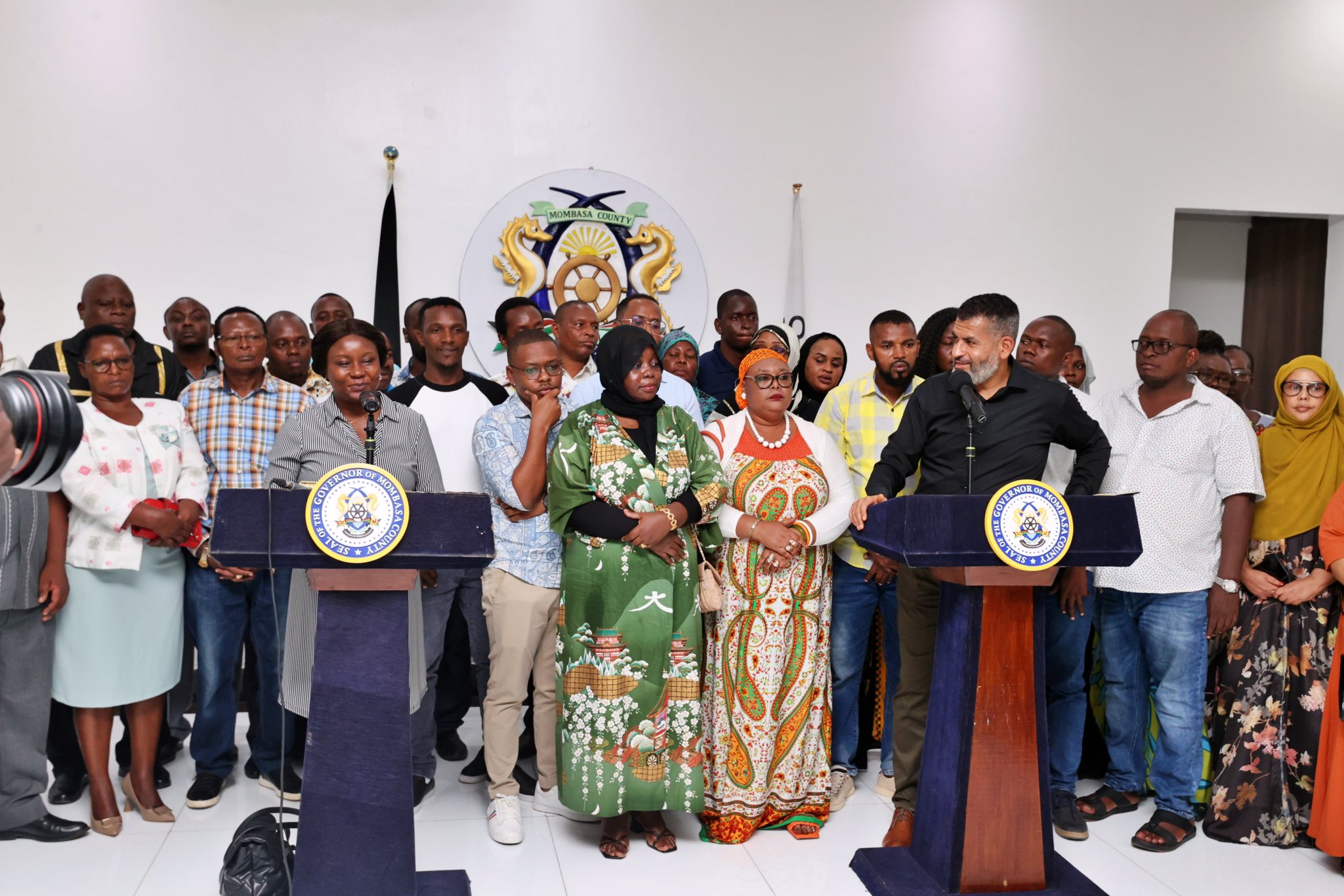 Embu Governor Cecily Mbarire is hosted by her Mombasa counterpart Abdulswamad Sheriff Nassir on May 15, 2024, for talks on the control and sale of miraa and muguka in Mombasa County. (Photo: Mombasa County Government)
Embu Governor Cecily Mbarire is hosted by her Mombasa counterpart Abdulswamad Sheriff Nassir on May 15, 2024, for talks on the control and sale of miraa and muguka in Mombasa County. (Photo: Mombasa County Government)
Government directive
The push and pull over the bans continues despite President William Ruto's declaration on Monday that they were null and void.
A statement from the State House cited the Crops Act of 2013 and the Miraa Regulations of 2023, which were passed by the Senate and the National Assembly and had the support of the Council of Governors (CoG).
Ruto directed the Agriculture ministry to convene a consultative meeting of key stakeholders to discuss their concerns and announced that the government had set aside Sh500 million to scale up farming, aggregation, and value addition to scheduled crops such as muguka and miraa in the 2024–2025 financial year.
Talks are therefore set to take place on issues surrounding the trade and consumption of the miraa variant following bans by three coastal counties: Mombasa, Kilifi, and Taita Taveta, and Embu's County's concerns.
Embu opposed the bans, citing the potential negative impact on its local economy, while Kwale said it would not prohibit the commodity, following the government's announcement.
Mombasa and Kilifi stayed put, saying they would not reverse their decisions, but Ruto announced on Tuesday that the two counties, along with Taita Taveta, had agreed to talks on all arising issues.
Where substance abuse is concerned, the National Authority for the Campaign against Drug Abuse (NACADA) released a survey in May 2023 that listed miraa and muguka among the top drugs of abuse in Kenya. The survey estimated that more than 960,000 people, among 15- to 65-year-olds, used the two commodities.
Then NACADA chief executive Victor Okioma emphasised the severity of the issue, noting that some individuals were undergoing rehabilitation specifically for miraa use. He pointed out that, while miraa itself is problematic, muguka poses an even greater threat.
Top Stories Today

